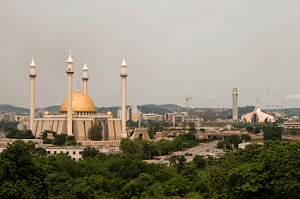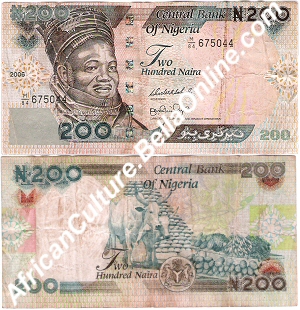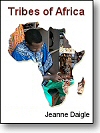Nigeria Country Facts

Official Name: Federal Republic of Nigeria
Alternate Names: Nigeria
Capital City: Abuja
 Flag: The Nigerian flag has three equal vertical bands - Green (hoist side), White, then Green.
Flag: The Nigerian flag has three equal vertical bands - Green (hoist side), White, then Green.
Date of Independence: October 1, 1960 from the United Kingdom
National Anthem: Arise, O Compatriots
Population: 149,229,090 people. Nigeria is the most populous country in Africa with 25% of Africa's population and the eighth most populous country in the world.
 Size/Area: 923,768 sq km, slightly larger than twice the size of California.
Size/Area: 923,768 sq km, slightly larger than twice the size of California.
Land Locked: No
Coastline: 853 km along the Atlantic Ocean
Bordering Countries: Benin, Chad, Cameroon, and Niger.
Administrative Divisions: Thirty-six states and one federal capital territory. The thirty six states are: Abia, Adamawa, Akwa Ibom, Anambra, Bauchi, Bayelsa, Benue, Borno, Cross River, Delta, Ebonyi, Edo, Ekiti, Enugu,, Gombe, Imo, Jigawa, Kaduna, Kano, Katsina, Kebbi, Kogi, Kwara, Lagos, Nassarawa, Niger, Ogun, Ondo, Osun, Oyo, Plateau, Rivers, Sokoto, Taraba, Yobe, Zamfara. The federal capital territory is Abuja.
 Major Cities: Abuja, Benin City, Bonny, Calabar, Effurun, Eket, Ibadan, Ilorin, Kaduna, Kano, Lagos, Maiduguri, Port Harcourt, Uyo, Warri, Zaria
Major Cities: Abuja, Benin City, Bonny, Calabar, Effurun, Eket, Ibadan, Ilorin, Kaduna, Kano, Lagos, Maiduguri, Port Harcourt, Uyo, Warri, Zaria
Languages: English (official), Hausa, Yoruba, Igbo, Fulani
Religions: Islam, Christianity, Indigenous Beliefs
Major Holidays: New Year's Day (January 1), Good Friday, Easter Monday, Workers' Day (May 1), Children's Day (May 27), National Day (October 1), Christmas Day (December 25), Boxing Day (December 26)
Currency: Nigerian Naira
Currency Code: NGN
 Highest Point: Chappal Waddi at 2,419 meters
Highest Point: Chappal Waddi at 2,419 meters
Lowest Point: Atlantic Ocean at 0 meters
Bordering Bodies of Water: Atlantic Ocean
Climate: The climate varies greatly depending on location. The climate is equatorial in the south, tropical in central Nigeria, and arid in the north.
Major Industries: Crude oil, coal, tin, columbite; palm oil, peanuts, cotton, rubber, wood, hides and skins, textiles, cement and other construction materials, food products, footwear, chemicals, fertilizer, printing, ceramics, steel, small commercial ship construction and repair
Major Agricultural Products: Cocoa, peanuts, palm oil, corn, rice, sorghum, millet, cassava (tapioca), yams, rubber, cattle, sheep, goats, pigs, timber, fish
Natural Resources: Natural gas, petroleum, tin, iron ore, coal, limestone, niobium, lead, zinc, arable land
Time Zone: UTC +1
 Tribes of Africa eBook
Tribes of Africa eBook
This eBook is the most complete listing of African tribes available on the internet. The first section of this book is the tribes sorted alphabetically by country. The second section is the tribes sorted alphabetically by tribe name.
Alternate Names: Nigeria
Capital City: Abuja
 Flag: The Nigerian flag has three equal vertical bands - Green (hoist side), White, then Green.
Flag: The Nigerian flag has three equal vertical bands - Green (hoist side), White, then Green.Date of Independence: October 1, 1960 from the United Kingdom
National Anthem: Arise, O Compatriots
Population: 149,229,090 people. Nigeria is the most populous country in Africa with 25% of Africa's population and the eighth most populous country in the world.
 Size/Area: 923,768 sq km, slightly larger than twice the size of California.
Size/Area: 923,768 sq km, slightly larger than twice the size of California.Land Locked: No
Coastline: 853 km along the Atlantic Ocean
Bordering Countries: Benin, Chad, Cameroon, and Niger.
Administrative Divisions: Thirty-six states and one federal capital territory. The thirty six states are: Abia, Adamawa, Akwa Ibom, Anambra, Bauchi, Bayelsa, Benue, Borno, Cross River, Delta, Ebonyi, Edo, Ekiti, Enugu,, Gombe, Imo, Jigawa, Kaduna, Kano, Katsina, Kebbi, Kogi, Kwara, Lagos, Nassarawa, Niger, Ogun, Ondo, Osun, Oyo, Plateau, Rivers, Sokoto, Taraba, Yobe, Zamfara. The federal capital territory is Abuja.
 Major Cities: Abuja, Benin City, Bonny, Calabar, Effurun, Eket, Ibadan, Ilorin, Kaduna, Kano, Lagos, Maiduguri, Port Harcourt, Uyo, Warri, Zaria
Major Cities: Abuja, Benin City, Bonny, Calabar, Effurun, Eket, Ibadan, Ilorin, Kaduna, Kano, Lagos, Maiduguri, Port Harcourt, Uyo, Warri, ZariaLanguages: English (official), Hausa, Yoruba, Igbo, Fulani
Religions: Islam, Christianity, Indigenous Beliefs
Major Holidays: New Year's Day (January 1), Good Friday, Easter Monday, Workers' Day (May 1), Children's Day (May 27), National Day (October 1), Christmas Day (December 25), Boxing Day (December 26)
Currency: Nigerian Naira
Currency Code: NGN
 Highest Point: Chappal Waddi at 2,419 meters
Highest Point: Chappal Waddi at 2,419 metersLowest Point: Atlantic Ocean at 0 meters
Bordering Bodies of Water: Atlantic Ocean
Climate: The climate varies greatly depending on location. The climate is equatorial in the south, tropical in central Nigeria, and arid in the north.
Major Industries: Crude oil, coal, tin, columbite; palm oil, peanuts, cotton, rubber, wood, hides and skins, textiles, cement and other construction materials, food products, footwear, chemicals, fertilizer, printing, ceramics, steel, small commercial ship construction and repair
Major Agricultural Products: Cocoa, peanuts, palm oil, corn, rice, sorghum, millet, cassava (tapioca), yams, rubber, cattle, sheep, goats, pigs, timber, fish
Natural Resources: Natural gas, petroleum, tin, iron ore, coal, limestone, niobium, lead, zinc, arable land
Time Zone: UTC +1
 Tribes of Africa eBook
Tribes of Africa eBookThis eBook is the most complete listing of African tribes available on the internet. The first section of this book is the tribes sorted alphabetically by country. The second section is the tribes sorted alphabetically by tribe name.
This site needs an editor - click to learn more!
You Should Also Read:
South Africa Country Facts
Liberia Country Facts
Burkina Faso Country Facts
Related Articles
Editor's Picks Articles
Top Ten Articles
Previous Features
Site Map
Content copyright © 2023 by Jeanne Egbosiuba Ukwendu. All rights reserved.
This content was written by Jeanne Egbosiuba Ukwendu. If you wish to use this content in any manner, you need written permission. Contact
BellaOnline Administration
for details.


